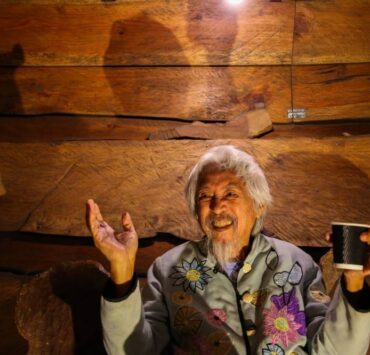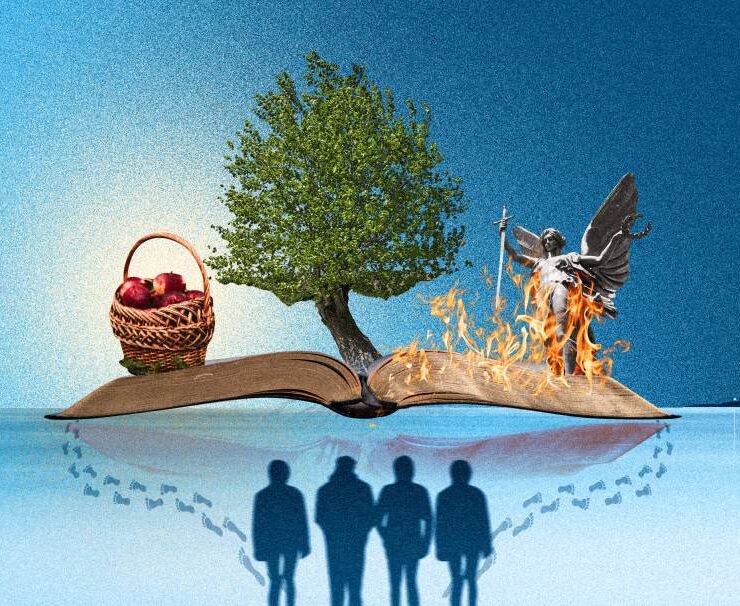‘Who do you say that I am?’

Sept. 15—24th Sunday in Ordinary Time
Readings: Is 50: 5-9a; Psalm 116, R. I will walk before the Lord, in the land of the living.; James 2: 14-18; Gospel – Mark 8: 27-35
“But who do you say that I am?” (cf. Mark 8: 27-35) This line from this Sunday’s Gospel is a very important reminder of the importance of making personal choices in our life, specifically our faith life.
This will be our first point for reflection. Our second point for reflection is the consequence of our personal choice. Then our final point is Jesus’ reprimand of Peter to “get behind me.”
Whenever someone tells me he/she is losing his/her faith in God, I ask if it is losing faith in God, or in one’s images of God.
We grow up having our images of God that we develop through our families, our school, our parish, our communities. One can say that these images are age-appropriate.
Back in the 1990s, one of the first books on children’s prayers to God came out. It gave a very vivid picture of how our relationship with God is shaped by our image of him that is age-appropriate.
But as we grow and mature—and life becomes more “complicated”—these images will need to evolve and develop; otherwise our faith becomes stagnant, if not dead.
In fact, the images must be replaced by who God is to us in a very personal way: “… who do you say that I am?”
Our response is shaped by our personal experience or encounter with God; the quality of this experience or encounter defines the quality of our relationship with God.
In the Gospel, Peter got it right. Jesus for him is the Christ, the Messiah, his personal Lord and Savior.
With this personal choice came the consequence of Jesus being his personal Lord and Savior. It meant that he needed to follow Jesus in the way of his passion, cross and resurrection, which the Lord so vividly predicted.
This encounter of Peter with Jesus was a deepening of his first call and his first “yes” to Jesus. His “yes” became clearer and more defined as who Jesus was to him became clearer, too.
There is no other way to have a personal relationship with Jesus outside of the passion, Cross and Resurrection pattern of life.
This what it means to be a follower of Jesus. The way of the passion, Cross and Resurrection in our life is a very personal one, and is in no way generic.
Crosses to bear
We often hear the phrase, “We each have our crosses to bear.” As Jesus told his disciples, “Whoever wishes to come after me must deny himself, take up his cross, and follow me.”
This further emphasized the consequence of choosing a personal relationship with Jesus as a personal following of Jesus by taking up our cross—emphasis on the “our”—as a personal sharing in his mission.
This is part of the difficulty of choosing a personal relationship with Jesus: “Who do you say that I am?” This is what sometimes encourages us to stick to images of God because once we enter into this personal relationship, there are no two ways in going about it.
The consequence is always the way of the passion, Cross and Resurrection lived out in very personal circumstances.
It took Peter a lot of time to grow into this. We saw in this narrative his growth from his first encounter with Jesus, his call, to this encounter where he was able to confess that Jesus is the Christ.
But he needed more formation, as we all do. He did not yet see the way of the passion, Cross and Resurrection as the defining elements of his relationship with Jesus as his Christ.
Thus, we see this very important moment in Peter’s formation. “Get behind me, Satan. You are thinking not as God does, but as human beings do.”
“Get behind me” meant he had to learn more how to follow Jesus: Get behind me and follow me. This is the essence of discipleship, to be a follower of Jesus.
This, too, is our formation journey, constantly in need of getting behind Jesus even as we growth and develop into better followers of Jesus.
After this, we still saw Peter falter. He denied Jesus three times. Then in his restoration in the last resurrection appearance of the Gospel of John, Peter was given the mission to preside in love as the first pope.
But in this further deepening and making more personal of Peter’s relationship with Jesus and his mission, we still find the same formula. “Follow me” are the final words of Jesus to Peter in this narrative. Always the final invitation, even for us: “Follow me.”




















